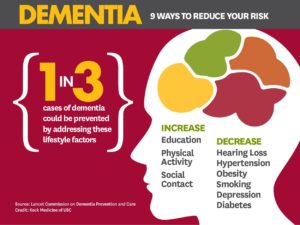Cancer is the main cause of premature death in Portugal

Malignant tumors are the second cause of death in the country – after cardiovascular diseases (including strokes and heart attacks) – killing every year nearly 30,000 people.
This number corresponds to one-third of the country’s annual births, at a time when the Portuguese population is shrinking.
At the opening of World Cancer Day Rui Portugal, the deputy director general of the General Directorate of Health (DGS) declared that roughly 60,000 new cases of cancer are discovered every year. Most common are lung, colon, and prostate cancer in men and breast and colon cancer in women.

Increased life expectancy (at present 80,7 years in Portugal), exposure to carcinogens (tobacco, alcohol, air pollution) and unhealthy lifestyles explain the progressive increase in the number of new cases.

He therefore emphasized that the main public health policies for controlling cancer should focus on risk factors such as tobacco and alcohol consumption at the same time urging the population to adopt a healthier lifestyle.

National screening programs for the prevention of cancer are little effective. Although the number of people screened for colon cancer has increased compared to the pre-Covid years, screening coverage in the country is heterogeneous and mainly concentrated in urban centers. There are rural areas where screening practically doesn’t exist.
‘Adherence strategies also need to be improved. People need to be convinced to join’, says José Deniz, director of the National Program for Oncological Diseases.

The president of the Portuguese Society of Pneumology, António Morais, recalls that lung cancer is one of the main causes of death. And, although fewer people are smoking nowadays, 15% of the population still does.
‘Smoking cessation consultations were among the most lagging behind during the pandemic and continue to do so as a result of the lack of family doctors. It is necessary to take advantage of the window of opportunity when someone considers quitting smoking.’

Moreover, he emphasized, there is the problem of electronic cigarettes. ‘It is said to harm less because it doesn’t burn but the nicotine is still there, causing addiction. It is a hoax published to exhaustion, even knowing that tobacco advertising has been banned in Portugal.’
Prevention should start in school. ‘Children are also health agents’, says Maria de Belém Roseira, the former Minister of Health. ‘They must take home the advice their parents did not have or did not value’.
Enjoy the week Aproveita a semana (pic Público/Sapo)


















 Back in 1998, the now 84-year-old artist created a series of paintings –
Back in 1998, the now 84-year-old artist created a series of paintings –  It lasted until 2007 before this mistake was corrected and abortion laws in Portugal were liberalized.
It lasted until 2007 before this mistake was corrected and abortion laws in Portugal were liberalized. The exhibition Paula Rego: Obedience and Defiance’ will be the first major retrospective of her work since the 1960s. To support the exhibition – that opens on 15 June at MK Gallery in Milton Keynes, UK – the artist has offered a limited edition print from her celebrated series hoping the etching Untitled Abortion, 2000 will help draw attention to the dangers of making abortion illegal again.
The exhibition Paula Rego: Obedience and Defiance’ will be the first major retrospective of her work since the 1960s. To support the exhibition – that opens on 15 June at MK Gallery in Milton Keynes, UK – the artist has offered a limited edition print from her celebrated series hoping the etching Untitled Abortion, 2000 will help draw attention to the dangers of making abortion illegal again. Portugal has, in fact, the highest prevalence of stroke in Europe. This is probably due to the high number of people with
Portugal has, in fact, the highest prevalence of stroke in Europe. This is probably due to the high number of people with  A consequence of the widespread existence of stroke and hypertension is the frequent occurrence of dementia.
A consequence of the widespread existence of stroke and hypertension is the frequent occurrence of dementia. Alzheimer is the most common form of dementia in Western Europe. Interesting enough, this is not the case in Portugal. A recent epidemiological study from the University of Porto and
Alzheimer is the most common form of dementia in Western Europe. Interesting enough, this is not the case in Portugal. A recent epidemiological study from the University of Porto and 
 Op het rijke Noordelijk halfrond is abortus niet langer een misdaad. Uitzonderingen zijn Ierland en Polen, waar de invloed van de katholieke kerk liberalisering belemmert.
Op het rijke Noordelijk halfrond is abortus niet langer een misdaad. Uitzonderingen zijn Ierland en Polen, waar de invloed van de katholieke kerk liberalisering belemmert.